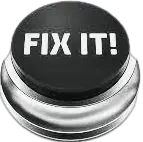Contingency collection agency – Businesses often prefer working with collection agencies on a contingency basis rather than paying upfront for services, which means the agency keeps a percentage of any funds successfully collected by them.
Rocket Receivables, which specializes in collections for small and midsize businesses, provides services in healthcare, education, professional services, residential real estate, commercial contract services and trade industries.
Fees
Debt collection agencies use various payment models for their services, including flat fee programs and contingency rates. Each has its own set of advantages and disadvantages.
Contingency collection agencies charge a percentage of debt they collect – usually 15-50% – as compensation, providing an incentive for hard work in collecting it for you. They may pursue legal action if necessary to increase chances of recovery of that debt and may be the best choice if your business has debt that has gone over 120 days past due.
However, it should be remembered that contingency arrangements may incur upfront costs, including legal and court filing fees if an agency chooses to take legal action against someone. Some agencies may also charge extra for services like skiptracing, attorney handling and credit reporting.
Flat fee debt collection agencies charge a set fee per account they recover regardless of its difficulty, making this arrangement helpful if your business manages a large number of low-balance accounts but less useful if debts go past due more than 30 days, since a flat-fee agency won’t feel incentivized to put in extra work when they know they will always get paid no matter what.
Efforts
Contingency collection agencies may be the ideal choice when it comes to debt collection. They only get paid if they succeed in collecting, so their employees are highly motivated to ensure the debtor pays.
Contingency collection agencies generally specialize in collecting unsecured debts such as utility, phone, credit card and medical bills. Contingency collection agencies may either act as original creditors such as credit card issuers, or they can purchase debt and attempt to collect it on behalf of their client (the Creditor).
Agencies employ various tactics to collect on delinquent debts, including letter campaigns, calls, negotiations and, when necessary, legal action. If necessary they may also report the account to credit bureaus and use social media tools like LinkedIn to locate their debtor.
Some debt collection agencies utilize a flat fee model, charging creditors a set rate per account managed. Although this approach may save an agency upfront money, misaligning incentives and leading to reduced effort by collection agents. To maximize their efforts and ensure maximum collection outcomes for difficult customers, many agencies assign top tier collectors exclusively for such accounts in order to increase collection odds and ensure a maximum chance of debt recovery.
Communication
Most collection agencies operate on a contingency fee basis, meaning they only get paid if they collect any money for their clients. This provides them with extra incentive to use all available resources effectively in resolving accounts that have fallen behind on payments.
Contingency debt collectors typically work for credit card companies, mortgage lenders or banks who hold your debt, as well as debt buyers who purchase it from its original creditor. Contingency collectors may send letters, make phone calls (or soon will under new federal rules), text message you or send letters encouraging payment of what’s owed.
Once your account is transferred from first-party collections to a collection agency, they typically follow a structured plan of letters, calls and other tactics designed to persuade you to pay. Plus, their expertise with current debt collection laws drastically decreases the chance for counter lawsuits as opposed to when your business handled debt collection in house.
The Agency will report each obligor’s payments to its Client on a regular basis (via “Direct Payment Statements”), detailing both amounts received and gross collection fee (“Contingent Fee”) due. They shall also promptly inform their Client of any dishonored checks sent in for collection, which will then be included as part of the next monthly invoice issued to them.
Legal Action
Most collection agencies employ letters, phone calls and negotiating skills in an attempt to collect on your debts. A contingency collection agency only gets paid if they’re successful at collecting, which provides additional incentive for them to be successful.
Your creditor or company oweing you debt may contract out the collections process to a contingency debt collection agency in exchange for a fee, usually when your balance has gone more than 120 or 180 days past due. When this occurs, their own efforts at recovering it may no longer be successful enough and a contingency debt collection agency becomes involved to collect it on their behalf.
Since collection agencies only get paid when they collect, they may pursue you aggressively in an effort to recover debt as quickly and without complications as possible. Though this may be daunting for you personally, keep in mind that collectors are incentivised to recover debt quickly with minimal hassle for themselves.
Debt collectors may offer to settle your debt for less than you owe, particularly if the original creditor has reported it to credit bureaus. Furthermore, debt collectors can inform you if their client plans on legal action, providing added incentive for settlement. But you should never let a debt collector pressure you into accepting an unfair settlement offer.

